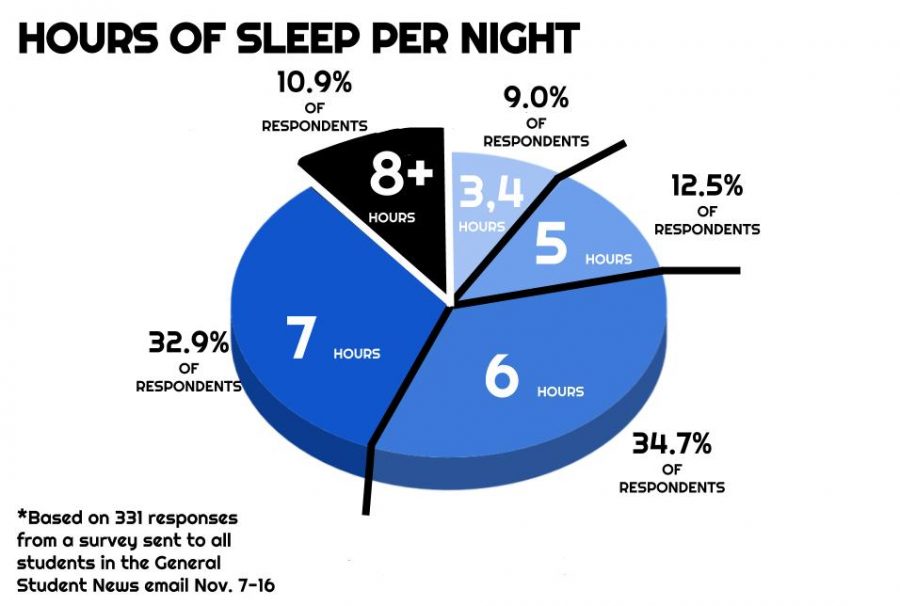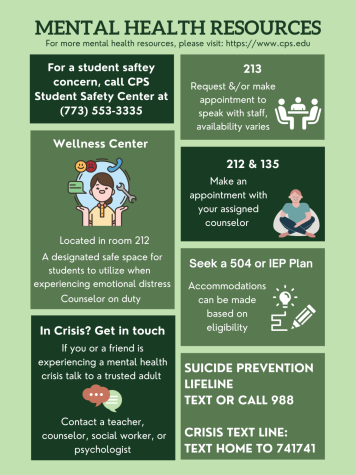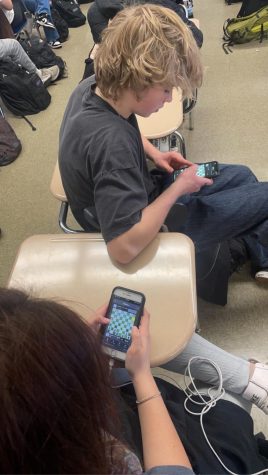Are teens sleeping on sleep?
Results from the survey conducted by The Warrior demonstrate a significant disparity between student sleep at Lane and CDC’s recommended amount of sleep.
January 7, 2019
Walking from the corner of Addison and Western, students file off CTA buses, coming in from all directions. Drowsiness and exhaustion engulf the school’s campus, as many students commuting from neighborhoods across the city are forced to wake up early to travel the long distance to school every morning.
According to the Centers for Disease Control and Prevention (CDC), sleep deprivation affects almost one-third of adults, causing approximately $400 billion in annual economic losses in the United States.
Sleep also appears to be a common issue that a large majority of students, especially at Lane, struggle with on a nightly basis, creating issues with student performance, particularly during the first few periods in the school day. Recognizing the issue of sleep deprivation among students in their city, school and city officials in Seattle pushed back their daily start time by nearly an hour.
According to a survey conducted by The Warrior, students at Lane only receive roughly 6.25 hours of sleep per night. Sent to students in mid-November, the survey collected student perspective on nightly sleep, extracurricular involvement, and impact on school performance. Though sleep typically varies per individual, the CDC recommends 8-10 hours of sleep for high school students each night.
“Sleep is critically important for things like mood regulation and learning, not just for alertness and focus,” said Dr. Gilson, Lane’s school psychologist. “It also allows us to build up immunity to disease, heal our bodies from injury, gives time for our bodies grow and allows us to digest food properly.”
Vuk Djuric, Div. 974, said he understands the importance of sleep for high school students.
“In my opinion, sleep is essential for optimal mental health,” Djuric said. “It’s hard to stay awake when you are extremely tired, which simply is not healthy for us as teenagers.”
According to an article in the New York Times, individuals who receive less than seven hours of sleep per night may face a higher risk of health problems later on in life, including obesity, heart disease and depression.
Steffany Donis, Div. 051, said that 8-10 hours of sleep is simply unrealistic for high school students, especially at Lane.
“If you are a student who is involved in many activities outside of school, takes rigorous courses or someone who possibly lives far away, it is difficult to expect this,” Donis said.
Though many students struggle to receive the recommended amount of sleep each night, Samuel Wolf, Div. 451, said that efficiency with homework would increase the likelihood of sleeping for 8-10 hours.
“I think that getting 8-10 hours of sleep is possible,” Wolf said. “If a student can get [their homework] done efficiently, they should be able to get at least eight hours of sleep per night.”
While optional homework has been adopted by several teachers at Lane, 90 percent of respondents admitted that they stay up later than desired due to their workload. Commutes also have a significant impact on students’ sleep habits: 40 percent of survey respondents associated travel to and from school as a factor behind their nightly sleep.
Ann Duong, Div. 170, said that 8-10 hours simply is not realistic for high school students, especially at Lane.
“As an athlete and a person who participated in clubs, I think it is difficult to get 8-10 hours of sleep because of the amount of homework and studying for tests,” Duong said.
Sixty percent of survey respondents also acknowledged that involvement in extracurricular activities affects their nightly sleep. With several hours devoted to extracurricular activity participation and homework each night, students are unfortunately forced to recognize sleep as a second priority.
Schantelle Alonso, Div. 152, struggles to get the recommended amount of sleep.
“There is not a single time in the week that I don’t go to sleep past midnight,” Alonso said. “On most mornings, I get up by five and usually end up going to bed by one.”
Out of the 331 survey respondents, almost 90 percent said they got less than the “healthy” amount of sleep recommended for teenagers. In addition, 82 percent of respondents considered their nightly sleep to have a slight to moderate negative impact on their daily school performance.
Megan Camacho, Div. 261, said that students who opt to take less rigorous courses are more likely to get more sleep each night.
“As a freshman, my workload is lighter and less difficult to deal with,” Camacho said. “Since I am not taking as many honors or AP classes as older students at Lane, that definitely gives me an advantage when it comes to sleep.”
Gilson recommends creating a sleep schedule to help get a better night’s sleep every day.
“You should have approximately the same sleep pattern every single day, whether it’s a day off or it’s a school day,” Gilson said. “You should always aim to go to bed at the same time approximately and aim to wake up at the same time, even if it’s a weekend because your body doesn’t know what the weekend means. All it knows is that it needs a certain amount of restorative sleep within every 24-hour cycle.”
According to sleep.org, a consistent sleep schedule allows one to fall asleep better at night and wake up more easily in the mornings. While there may be unpreventable interferences along the way, maintaining a schedule that one can follow during the school week and on the weekends will dramatically improve the length and quality of nightly sleep.
Gilson also recommends restricted phone usage before bed, as the stimulus of bright light interferes with the brain’s ability to shut down.
“Try to not use devices 30 to 45 minutes before you go to bed,” Gilson said. “Nothing backlit because the backlit display on your device, on your TV screen, on your tablet, on your laptop, it actually activates your brain.”
While high school is all about exploration, experimentation, and discovery, the effects of sleep can persist throughout one’s life, making it essential to find a balance at a young age.
“You’ve got to figure out what makes your body work optimally,” Gilson said. “Good sleep hygiene is how you do it.”
Need help creating a sleep schedule or finding solutions for a longer night’s rest? Visit Dr. Gilson in the library office during lunch periods on Tuesdays or set up a meeting by emailing her at [email protected].







